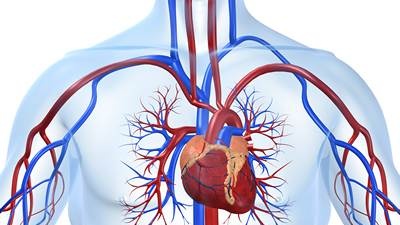|
 Cholesterol is classified as lipid. Lipids are substances that do not dissolve in water, but can be attacked by organic solvents such as chloroform. Other essential lipids include triglycerides and fatty acids. Lipids play a significant role in ensuring the vital activity of the body. Cholesterol is classified as lipid. Lipids are substances that do not dissolve in water, but can be attacked by organic solvents such as chloroform. Other essential lipids include triglycerides and fatty acids. Lipids play a significant role in ensuring the vital activity of the body.
Their main functions in the human body:
- source and storage of energy
- an important part of the membrane surrounding every somatic cell
are the basic building blocks from which a number of hormones (chemical messengers) and bile acids (digestive juices) are constructed.
- components of the nervous system.
A small amount of cholesterol enters the body with food, but, nevertheless, the bulk of cholesterol is produced directly by our body, mainly in the liver, from saturated fats (animal and milk fats).
Cholesterol is present in every cell in our body and forms a vital part of the membrane that surrounds it, thus protecting the cell from 'leaking'.
Cholesterol also serves as a constituent of many hormones needed to regulate growth and maintain vitality. Cholesterol-carrying hormones:
Estrogens and progestogens
These hormones are produced by the ovaries and are responsible for female sex characteristics and the menstrual cycle.
Testosterone
This hormone is produced by the testes and is responsible for male sex characteristics and sperm production.
 Cortisol Cortisol
Cortisol is produced by the adrenal glands, which are located at the top of each kidney. Cortisol regulates our body's response to stress.
Aldosterone
Like cortisol, aldosterone is an adrenal hormone. It is responsible for regulating the salt balance in the body.
1,25-Dihydrocholecalciferol (active form of vitamin D)
Vitamin D enters the human body from food with a well balanced diet; it can also be produced on the skin by exposure to sunlight, especially during the summer months of the year. Vitamin D is converted by our liver and kidneys into a hormone, 1,25-dihydrocholecalciferol, which in turn controls the absorption of calcium in the intestines and is essential for proper bone development and overall health. Vitamin D deficiency in adults leads to softening of the bones, a condition called osteomalacia.
Bile acids are also produced in the liver from cholesterol and play the role of a 'solvent' in the intestines, breaking down fats from food.
They are essential for normal digestion and absorption of fats and fat-soluble vitamins (A, D, E and K). If bile acids do not enter the intestines from the gallbladder, where they are ‘stored’, the fat is not digested properly and this leads to diarrhea; the stools become pale and foul-smelling.
Although it has been proven that excess cholesterol can cause heart disease, without its presence in the body, normal functioning would be impossible.
Nesbitt T.
|